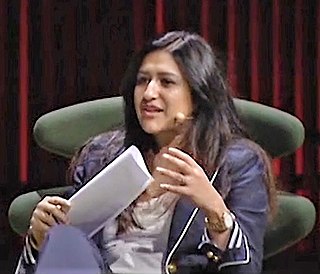A Quote by Marty Neumeier
I see "demand creation" as a 20th-century construct that's bound up with advertising. It's an outmoded view of marketing that says, "First, we build a product or service, then we advertise it into people's lives." Embedded this view is the belief that companies control brands. This is a myth. My message all along has been that brands are actually created by customers, not companies. Companies only provide the raw materials - the products, messaging, behaviors - that people use these to create brands.
Quote Topics
Actually
Advertising
Along
Been
Behaviors
Belief
Bound
Brands
Build
Century
Companies
Construct
Control
Create
Created
Creation
Customers
Demand
Embedded
First
Lives
Marketing
Materials
Message
Messaging
Myth
Only
People
Product
Products
Provide
Raw
Raw Material
Raw Materials
Says
See
Service
Then
Up
Use
View
Related Quotes
When the trust is high, you get the trust dividend. Investors invest in brands people trust. Consumers buy more from companies they trust, they spend more with companies they trust, they recommend companies they trust, and they give companies they trust the benefit of the doubt when things go wrong.
Most brands that are called luxury brands today are not true luxury brands. The globalization of fashion and luxury means you now find the same luxury brands in every city. The stores look the same, the products are the same. It is still a very good quality product but it is now readily available to everyone. It's a kind of mass luxury.
Over the past 60 years, marketing has moved from being product-centric (Marketing 1.0) to being consumer-centric (Marketing 2.0). Today we see marketing as transforming once again in response to the new dynamics in the environment. We see companies expanding their focus from products to consumers to humankind issues. Marketing 3.0 is the stage when companies shift from consumer-centricity to human-centricity and where profitability is balanced with corporate responsibility.



































